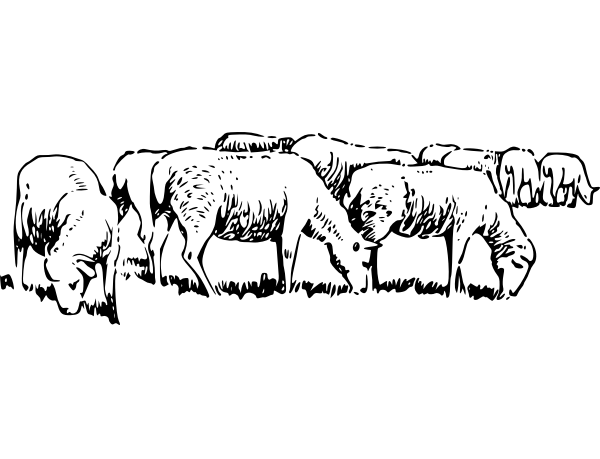Lambing Season!
AGRICULTURE AT A GLANCE


...and here is February already! Lambing season is upon us, and farmers are out standing in their fields with catcher's mitts.
Lambs bouncing around on fresh grass is a traditional spring picture, and for good reason; lambs start arriving in February. Although it seems like inhospitable weather for brand new babies, they are surprisingly hardy little beasts, and if left to their own devices may lamb as early as January. Shepherds generally prefer late February and March, though, as it makes for an early fall harvest season when the lambs are six to eight months old.
Celtic Mist Meadows is a local farm focusing on Jacob Sheep, alpacas, goats, and poultry including rabbits. The farm is co-located with Celtic Elk Campground just south of Randle off Cispus Road. These farmers chose Jacob Sheep because they are a smaller animal, and a multipurpose heritage breed (meat, wool, hides, milk, and fascinating mounts due to the fact that they are polycerate which mean they are multihorned). The Livestock Conservancy has Jacob Sheep listed as threatened, which means the breed needs more breeders!
Being a smaller breed, typically ewes weigh 80-120 pounds, and rams weigh 120-180 pounds. The breed requires novice to intermediate livestock raising experience, making them a good introduction to the species. American Jacobs are old world sheep, with a primitive body shape and more slender bones. Unlike many other old world breeds, Jacobs haven’t undergone improved breeding and outcrossing to satisfy the commercial marketplace. Jacob Sheep provide a flavorful, lean carcass with little external fat. Compared to the more improved breeds, the breed boasts a high carcass yield from hanging weight to freezer. Due to finer bone structure and less body fat, you can stock more of these sheep on pasture than the modern breeds, with 25 to 50 percent increases reported. Ewes require less supplemental feed during times of increased nutritional need. While ewes can breed as young as six months, it’s better practice to hold off until they are eighteen months old….eighteen months of farmer input including feed, labour and infrastructure, with no return….then an additional five months, once bred, before that ewe has probably two lambs, though singles, triplets and even quads are seen. The lambs are grown out for six to eight months before harvest.
On a typical year, Celtic Mist Meadows expects to have five to ten lambs available for the freezer, though this year they may only have two, after a cougar attack last fall took more than half of their flock. The farmers are seeking replacement ewes, but careful selection of quality breeding stock can take some time. They hope to have their flock up back up to good production numbers in short order.
Drill Down: The Livestock Conservancy https://livestockconservancy.org/
Their mission is “To protect America’s endangered livestock and poultry breeds from extinction.” Why save them? Many of America’s once-common farm animals face extinction if we do not take action now. Rare farm animals represent an irreplaceable piece of earth’s biodiversity and offer incredible variety that may be needed for future farms – robust health, mothering instincts, foraging, and the ability to thrive in a changing climate. These farm animals are a vital part of ensuring food security for our planet – now and for the future.
Book Recommendation: The Butcher’s Guide to Well-Raised Meat http://www.alexandrazissu.com/book-the-butchers-guide-to-well-raised-meat
For fans of Michael Pollan’s The Omnivore’s Dilemma and anyoneconcerned about commercial meat, here is the ultimate guide to buying, butchering, and cooking meat they can feel good about eating, from the owners of Fleisher’s Grass-Fed and Organic Meats. Fighting the evils of industrial meat, butchers have become the newest, hottest food celebrities. Nobody knows this better than husband-and-wife team Joshua and Jessica Applestone, trailblazers in the industry, who set extremely high standards for the quality and provenance of the meat they sell. Joshua, a third-generation butcher and former vegan, and Jessica, a former vegetarian, are advocates for humanely and ecologically raised local meat and promote these issues and their craft through wildly popular seminars. The Applestones have been featured in The New York Times, Food & Wine (“one of the country’s best butchers”), Gourmet, GQ, Martha Stewart Living (“tastemakers” issue, April 2010), Forbes, and The New Yorker. They taught butchery to bestselling Julie & Julia author Julie Powell and feature prominently in her book Cleaving. Joshua has appeared on the Martha Stewart Show and as a judge on Iron Chef.




